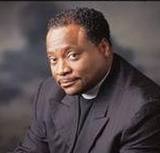Everybody got secrets, including me, you and apparently Bishop Eddie Long (Alleged Sexual Abuse). But God knows the heart and he knows our “Secret Sin”. Some may say that what is between you and God is between you and Him. Well that is true. However, Secret Sin is Not Safe and whatever is in the dark WILL come to light IF not dealt with! Repentance is key! So before we start bashing Eddie let’s first take a retrospective look at our own “Secret Sin” that don’t nobody but God know. The mess is out there now. Lets see how this thing is spun. But you can only deal with mess so long before it starts to stink up the entire house.
I read something from John Mac Arthur that I think gets to the core of what we are seeing going on today.
Nothing “Safe” About Secret Sin
by
John MacArthur
Copyright 2007, Grace to You.
Christ’s exposition of the law is a devastating blow against the lie that image is everything.
Christ taught repeatedly that sin bottled up on the inside, concealed from everyone else’s view, carries the very same guilt as sin that manifests itself in the worst forms of ungodly behavior. Those who hate others are as guilty as those who act out their hatred; and those who indulge in private lusts are as culpable as wanton adulterers (Matt. 5:21-30).
So Christians are not to think of secret sins as somehow less serious and more respectable than the sins everyone sees. Here are three reasons secret sin is especially abhorrent:
1. Because God sees the heart.
Scripture tells us “God sees not as man sees, for man looks at the outward appearance, but the Lord looks at the heart” (1 Sam. 16:7). No sin—not even a whispered curse or a fleeting evil thought—is hidden from the view of God. In fact, if we realized that God himself is the only audience for such secret sins, we might be less inclined to write them off so lightly.
The Bible declares that God will one day judge the secrets of every heart (Rom. 2:16). He “will bring every act to judgment, everything which is hidden, whether it is good or evil” (Eccl. 12:14).
Not only that, secret sins will not remain secret. “The Lord [will] bring to light the things hidden in the darkness” (1 Cor. 4:5). Jesus said, “There is nothing covered up that will not be revealed, and hidden that will not be known. Accordingly, whatever you have said in the dark shall be heard in the light, and what you have whispered in the inner rooms shall be proclaimed upon the housetops” (Luke 12:2-3). Those who think they can evade shame by sinning in secret will discover one day that open disclosure of their secrets before the very throne of God is the worst shame of all.
It is folly to think we can mitigate our sin by keeping it secret. It is double folly to tell ourselves that we are better than others because we sin in private rather than in public. And it is the very height of folly to convince ourselves that we can get away with sin by covering it up. “He who conceals his transgressions will not prosper” (Prov. 28:13).
All sin is an assault against our holy God, whether it is done in public or in secret. And God, who beholds even the innermost secrets of the heart, sees our sin clearly, no matter how well we think we have covered it.
2. Because sin in the mind is a fruit of the same moral defect that produces deeds of sin.
When Jesus said hatred carries the same kind of guilt as murder, and lust is the very essence of adultery, He was not suggesting that there is no difference in degree between sin that takes place in the mind and sin that is acted out. Scripture does not teach that all sins are of equal enormity.
That some sins are worse than others is both patently obvious and thoroughly biblical. Scripture plainly teaches this, for example, when it tells us the sin of Judas was greater than the sin of Pilate (John 19:11).
But in His Sermon on the Mount Jesus was pointing out that anger arises from the same moral defect as murder; and the one who lusts suffers from the same character flaw as the adulterer. Furthermore, those who engage in thought-sins are guilty of violating the same moral precepts as those who commit acts of murder and adultery.
In other words, secret sins of the heart are morally tantamount to the worst kind of evil deeds—even if they are sins of a lesser degree. The lustful person has no right to feel morally superior to a wanton fornicator. The fact that she indulges in lust is proof she is capable of immoral acts as well. The fact that he hates his brother shows that he has murder lurking in his heart.
Christ was teaching us to view our own secret sins with the same moral revulsion we feel for wanton acts of public sin.
3. Because hidden sin involves the compounding sin of hypocrisy.
Those who sin secretly actually intensify their guilt, because they add the sin of hypocrisy to their offense. Hypocrisy is a grave sin in its own right. It also produces an especially debilitating kind of guilt, because by definition hypocrisy entails the concealing of sin. And the only remedy for any kind of sin involves uncovering our guilt through sincere confession.
Hypocrisy therefore permeates the soul with a predisposition against genuine repentance. That is why Jesus referred to hypocrisy as “the leaven of the Pharisees” (Luke 12:1).
Hypocrisy also works directly against the conscience. There’s no way to be hypocritical without searing the conscience. So hypocrisy inevitably makes way for the most vile, soul-coloring, character-damaging secret sins. Thus hypocrisy compounds itself, just like leaven.
Beware that sort of leaven.
No matter who suggests to you that appearances are everything, don’t buy that lie.
As a matter of fact, your secret life is the real litmus test of your character: “As he thinks within himself, so he is” (Prov. 23:7). Do you want to know who you really are? Take a hard look at your private life—especially your innermost thoughts. Gaze into the mirror of God’s Word, and allow it to disclose and correct the real thoughts and motives of your heart.
I honestly pray the sexual harassment allegations against Long are not true. However, I also realize that God’s will prevails ALL THE TIME and if it is time for this mess to be revealed , So Be It!
IF the allegations are true- WOW is all I can say!









